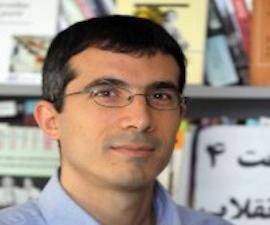

Research Bio
Cihan Tuğal studies social movements, populism, capitalism, democracy, and religion. In his recent publications, he discusses the far right, neoliberalization, state capitalism, and populist performativity in Turkey, the United States, Hungary, Poland, India, and the Philippines. (See his articles in Historical Materialism, Journal of Right-Wing Studies, Contemporary Politics, Critical Sociology [2023], and Annual Review of Sociology). Tuğal is currently working on a book that will incorporate these case studies, along with an analysis of populism in Brazil.
Based on fieldwork in Egypt and Turkey as well as historical analysis, Tuğal’s previous book Caring for the Poor (2017, Routledge) examines the emergence, globalization, and decline of liberal welfare ethics. The book builds on a Maussian analysis of the gift, as well as Polanyian, Marxian, Bourdieusian, and Foucaultian theorizations of charity. Tuğal has published offshoots of his larger project on welfare ethics in the American Journal of Sociology, Qualitative Sociology, and Rethinking Marxism. His ongoing work explores ethical, religious, and spiritual alternatives to the rationalization and individualization of care and well-being.
Three articles on the global uprisings of 2009-2013 provide a snapshot of Tuğal’s work on capitalism and politics (see below: “Elusive Revolt”, "Decline of the Monopoly of Legitimate Violence," and “Resistance Everywhere”). Marketization, uneven growth, increasing ineffectiveness of American hegemony, and decimation of middle classes have undermined the (liberal-conservative) mainstream and incited revolt. As Tuğal’s collaborative work with De Leon and Desai emphasizes, political creativity (or lack thereof) thoroughly shapes what kind of a route societies take in response to such turbulence. For now, the American far right has scored (important but) restricted victories as a result of this global chaos (see below: "The Counter-Revolution’s Long March," as well as the shorter pieces in Jacobin, Marxist Sociology Blog and New Politics). His earlier books unpacked similar processes in Turkey, Egypt, Iran, and Tunisia (Passive Revolution, Stanford University Press; and The Fall of the Turkish Model, Verso).
Interested in social theory? Check out his essay "Of Elephants and Scholars," an initial attempt to provide a comprehensive agenda for post-state and post-capital sociology. He has also initiated a team project to study the ecological crisis of capitalism, with special emphasis on the role of labor and community struggles in developing sustainable energy and infrastructure.
Tuğal has also written extensively in Turkish, some of which was translated to German and Persian. His works in English have been translated to German, Spanish, Portuguese, French, Chinese, Swedish, Turkish, Romanian, and Ukrainian. He is a full-time faculty member at Sociology and is also affiliated with several research centers on campus, including the Center for Middle East Studies and Global Metropolitan Studies.
Research Expertise and Interest
political sociology, social movements, religion, Islam and the Middle East, culture, poverty and class, social theory, ethnography
